US Says It Would Walk Away From Talks If Iran Displays Intransigence
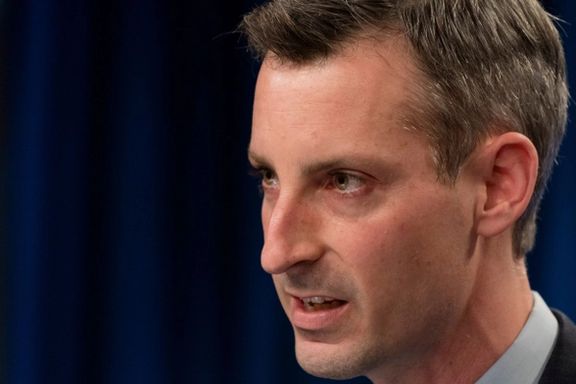
Washington is prepared to walk away from nuclear negotiations in Vienna if Iran displays intransigence, State Department spokesperson Ned Price said on Monday.

Washington is prepared to walk away from nuclear negotiations in Vienna if Iran displays intransigence, State Department spokesperson Ned Price said on Monday.
“We are prepared to walk away if Iran displays an intransigence to making progress," Price told reporters at a regular press briefing of the indirect talks taking place in Vienna.
The United States and its allies and partners will pursue "alternatives" if Iran is "unwilling to engage in good faith," he added, without detailing those alternatives.
Reuters on Monday quoted two sources close to the talks in Vienna as saying that Iran had submitted new demands, while continuing to insist on existing ones, including the removal of a US foreign terrorist organization (FTO) designation against Iran's Revolutionary Guards (IRGC).
"Iran's stance after Bagheri's trip to Tehran has become even more uncompromising .... they now insist on removal of sanctions on the IRGC and want to open issues that had already been agreed," one of the sources said.
Tehran has been demanding the lifting of more sanctions than the US is willing to accept, including removing its Revolutionary Guard from the list of Foreign Terrorist Organizations. It also demands firm guarantees that in the future the US will not act contrary to the agreement.
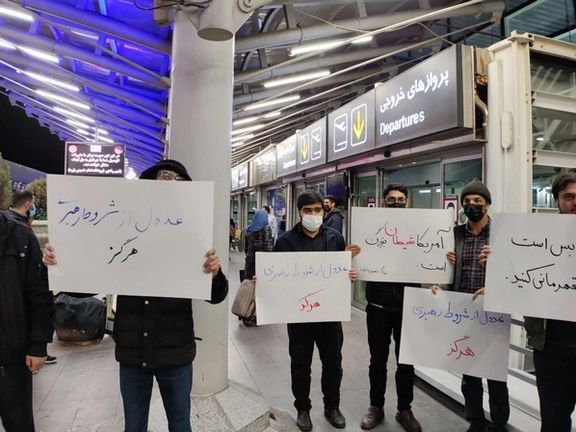
Russia’s top negotiator in Iran nuclear talks says intensive work is ahead and a last effort is needed to wrap up the negotiations to revive the 2015 agreement.
Mikhail Ulyanov twitted photos of the Monday evening meeting with JCPOA participants in Palais Coburg, saying, “Tremendous progress has been made since April 2021, when the talks started. But there is a rule: nothing is agreed until everything is agreed.”
He also tweeted about his meeting with chief Iranian negotiator Ali Bagheri-Kani saying that “intensive work is ahead of us to wrap up the negotiations on restoration of the JCPOA”.
Bagheri Kani returned to Vienna on late Sunday to continue the eighth round of talks with representatives of the five remaining parties of the JCPOA to resolve the remaining issues.
The Iranian diplomat, who had gone to Tehran last week to hold consultations and receive necessary directives, flew back from the capital as some Basij hardliners gathered at the airport to protest against the agreement.
They held placards with sentences echoing remarks by Supreme Leader Ali Khamenei and chanted “Death to the America.”
Iran's foreign ministry said on Monday that "97-98 percent" of a draft agreement is ready but three key issues remain that the West has not agreed with.
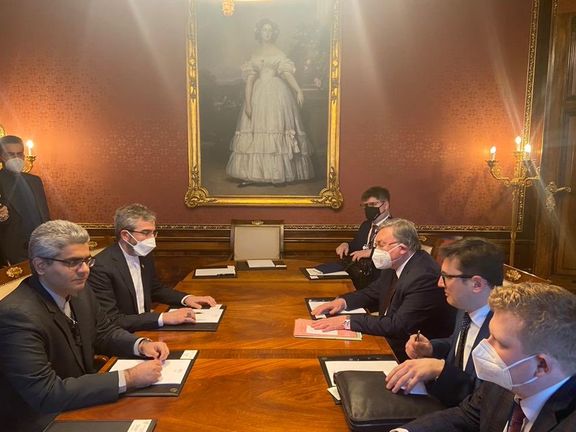
Media in Iran are hotly debating whether the Ukraine crisis will help Iran in its nuclear talks in Vienna or altogether lead to the failure of the negotiations.
Some commentators see benefits for the Islamic Republic as world powers are entangled in the biggest international confrontation since the 1960s Cuban Missiles crisis.
International relations analyst Mohammad Javad Jamali Nobandegani told Nameh News in Tehran, "We do not support the war, but problems created for some of the negotiators in Vienna could turn out to be in Iran's interest." He added that Russia as a country under sanctions could help Iran against “a common enemy."
He argued the West's inability to support Ukraine, might lead to a change of approach among Iran's neighbors who usually rely on the United States in their confrontation with Tehran.
This could have been a reference to the United Arab Emirates and other regional countries with good ties with Washington.
Former lawmaker Heshmatollah Falahatpisheh, on the other hand belives that the invasion of Ukraine has revealed Russia's weakness and that it is time for Iran to engage in direct talks with the United States and get rid of Russia as a mediator who is normally motivated by its own interest as Iran's rival in the global oil and gas market.
Iranian state TV commentator Jafar Ghannadbashi agreed with Falahatpisheh and said in an interview with Farda News that the situation is ripe for Iran to get concessions from the West. He said Russia's problems in Ukraine can affect Iran's nuclear talks although the extent of the impact of the Ukraine crisis on the nuclear talks depends on many factors.Ghannadbashi added that some analysts have exaggerated the impact of the Ukrainian crisis on the fate of the nuclear talks.
As a result of this crisis, Europe and America on the one hand, and Russia on the other, wish to garner support for their positions. This situation prompts both to offer concessions and this could end up in Iran’s interest, he said, adding that confrontations between big powers, which is reminiscent of the Cold War, can always serve the interests of countries like Iran.
Meanwhile, International relations expert and former diplomat Jalal Sadatian told Nameh News that there is no direct link between the war in Ukraine and the nuclear negotiations in Vienna. He said Iran might change its positions based on new developments but aggression against another country is absolutely not acceptable.
No politician in Iran has taken a tough stance in condemnation of Russia's aggression. This behavior has been criticized by some experts. However, those who support Russia's position expect Moscow to influence the negotiations in Vienna, Sadatian said.
However, he insisted that Iran should not act based on its ties with Russia and should condemn the war. "There is no justification for aggression against another country.
Meanwhile, he ruled out the hypotheses about the West and particularly the United States are tied up with the Ukraine crisis and will possibly cave in to Iran’s demands.
However, Sadatian agreed that the crisis in Ukraine could indirectly affect Iran. "For instance, now that we can sell more oil, the rise in the price of oil is in our interest. But this should not mislead us to believe that Russia, China, the European troika and the United States will forget about Iran's ambitions. I believe that is a simplistic analysis," Sadatian, a former adviser to former President Akbar Hashemi Rafsanjani, said.
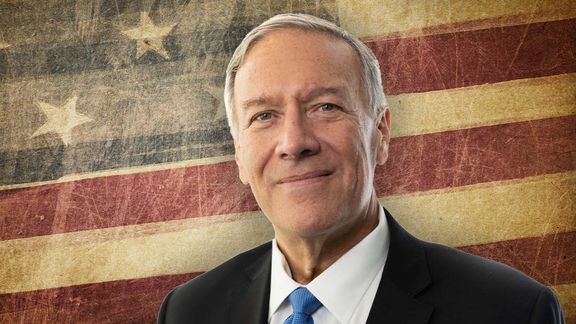
Former Secretary of State Mike Pompeo has called on President Joe Biden to stop working with Russia in Iran nuclear talks in Vienna.
In a tweet on Monday, Pompeo urged Biden to “stop partnering with Russia to cut a deal with Iran”.
He added that “When China and Russia are on your side of the table negotiating ‘against’ Iran, you are putting America and Israel at risk”.
One day after the Russian invasion of Ukraine began, the United States announced that it will continue to work with Russia on reviving the 2015 Iran nuclear agreement.
State Department spokesperson Ned Price on Friday said that Washington will continue to engage with Moscow over efforts to prevent Iran from developing nuclear weapons, even though Moscow's invasion of Ukraine had made it a "pariah on the world stage”.
Earlier on Sunday, Israel's former national security adviser Meir Ben-Shabbat said Iran’s nuclear program is a far more direct threat to Israel’s security than the Ukrainian crisis, warning that Tehran can “take advantage of the global tumult in order to make progress on the nuclear program and other areas”.
Some have expressed reservations about continuing to involve Russia in high-stakes diplomatic and security issues, while Moscow has up-ended the international security structures by its attack on Ukraine with the declared aim of replacing its elected government and deciding its foreign policy course.
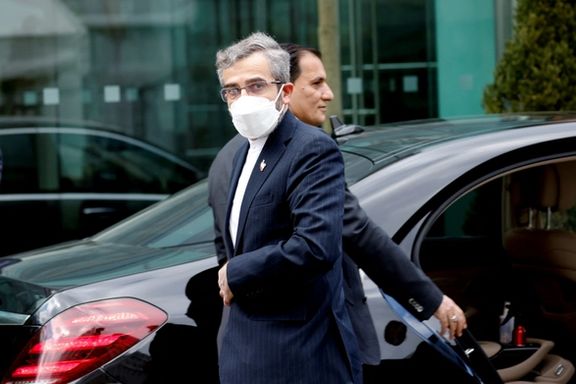
It is urgent to conclude negotiations over reviving a 2015 nuclear deal between world powers and Iran this week, France's foreign ministry said on Monday.
"There is indeed critical urgency to conclude the negotiations this week," spokeswoman Anne-Claire Legendre told reporters in a daily briefing.
Iran International reported on Saturday that according to Western and Iranian sources the United States has given Iran "an immediate deadline" to respond to a final package of Western proposals on reviving the 2015 nuclear agreement known as JCPOA.
Iran's foreign ministry said on Monday that "97-98 percent" of a deaft agreement is ready but three key issues remain that the West has not agreed with.
Iran has been demanding the lifting of more US sanctions than Washington is willing to accept. It also demads a firm guarantee from Washington that a future US government will not renege on the deal. The Biden Administration has said that constitutionally it cannot provide such a guarantee on behalf of a future president, as the agreement in question is not a treaty to be ratified by the Senate.
Iran's lead nuclear negotiator Ali Bagheri Kani, who flew to Tehran last week for consultations about the final draft of the deal, will meet the European Union's Enrique Mora, who coordinates the talks in Vienna on Monday.
Reuters on Monday quoted two sources close to the talks in Vienna as saying that Iran had submitted new demands, while continuing to insist on existing ones, including the removal of a US foreign terrorist organisation (FTO) designation against Iran's Revolutionary Guards (IRGC).
"Iran's stance after Bagheri's trip to Tehran has become even more uncompromising .... they now insist on removal of sanctions on the IRGC and want to open issues that had already been agreed," one of the sources said.
The Guards is a powerful faction in Iran that controls a business empire as well as elite armed forces and intelligence services. Dozens of its commanders have high-ranking positions in hardline President Ebrahim Raisi's government.
The FTO designation of IRGC by Washington in 2019, which was the first time the United States had formally labelled part of another sovereign government as a terrorist group, has caused further problems for Iran's sanction-hit economy.
Tehran also insists the International Atomic Energy Agency (IAEA) drop its case about Tehran’s nuclear work, objecting to an assertion by the UN nuclear watchdog last year that Tehran had failed to fully explain the presence of uranium traces found at several undeclared sites.
The sites in question are implicated in clandestine nuclear work two decades ago, abandoned when Tehran's nuclear activities came into public focus in 2002.
"We have answered the agency's questions. But instead of closing the politically-motivated case, they are using it to gain leverage in the talks," said an Iranian official in Tehran.
Observors are concerned that the Russian invasion of Ukraine can derail the Iran negotiations. Iran has sided with Russia and blamed the United States and NATO for the crisis. Russia has played a major role in the talks, often acting as mediator between Washington and Tehran.
With reporting by Reuters
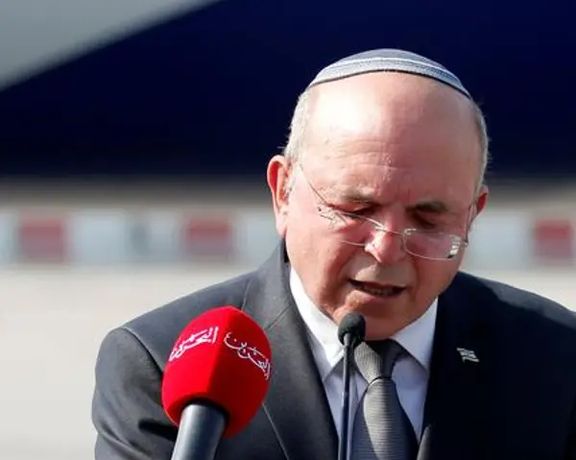
Israel's former national security adviser says the Russian invasion of Ukraine can spark a rush to conclude the deal between Iran and world powers.
Meir Ben-Shabbat, top Benjamin Netanyahu’s aide and Chief of Staff for National Security, says with the Ukraine crisis into its fifth day, the world’s attention as well as that of Israel has been focused on Eastern Europe, which can enable Tehran “to take advantage of the global tumult in order to make progress on the nuclear program and other areas”.
In an interview with the Times of Israelin Hebrew published on Monday, he described Iran’s nuclear program as a far more direct threat to Israel’s security, expressing concerns that “it looks like they are very close” to an agreement in Vienna.
“There could be effects in both directions”, he said, noting, “On the one hand, it could get in the way of the rush toward an agreement, because of the difficulty of bringing representatives to sign the agreement during this time. On the other hand, it could lead to the mistaken conclusion that a deal must be signed quickly in order to remove this issue from the agenda and to focus on the crisis in Europe”.
Some Iranian politicians also expressed cautious optimismthat the Russian invasion of Ukraine might speed up a nuclear deal between Tehran and Washington.